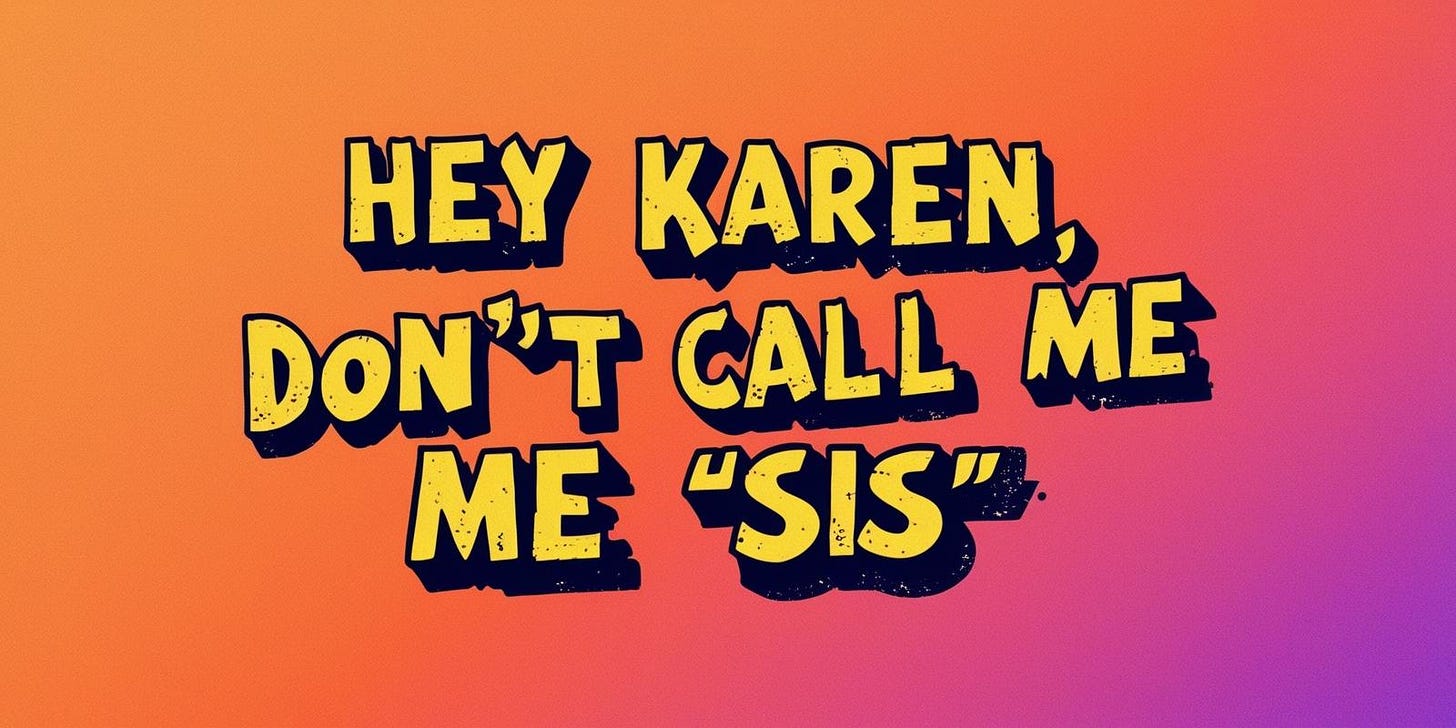Hey Karen, Don’t Call Me “Sis”
The Complicated Truth About Black and white Women in America
The only way I know how to be is real, so here it goes.
I am so tired of this “sisterhood” that some white women love to reference. Amongst many other things, it’s complicated and messy. Historically, the relationship between Black women and white women has been met with less bonding and more chaos, especially in the good ol’ United States.
The tension didn’t start on Twitter. It started on plantations.
And here comes the history recap.
During slavery, white women were marginalized under patriarchy, but still benefited from their white privilege. While Black women were stripped of agency, white women were often the ones enforcing the rules of the house. One group had no power while the other had proximity to it.
Then came the women’s suffrage movement when the white, fragile tears were shed. White women were outraged when Black men got the vote before they did. Black women were caught in the crossfire, forced to either back their Black men or side with white women, who regardless of “sisterhood” and “girl power",” didn’t see them as equals.
When the 19th Amendment was passed, Black women still couldn’t vote because of Jim Crow laws, poll taxes, literacy tests, and pure racist violence. White women progressed while Black women were still pushing uphill.
Fast forward to the second-wave feminism era in the 1960s and 1970s, white feminists were burning bras while Black women (the word “feminist” irks me) were burnt out. Always fighting, but never seen. Shout out to the Combahee River Collective, who basically had to spell out that liberation isn’t one-size-fits-all.
And here we are now — decades later — still dealing with the same blind spots but with better hashtags.
The “Karen” meme may be viral, but it’s not funny when you know those 911 calls used to end in lynchings. And remember the 2017 Women’s March? Pink hats were everywhere, but Black women’s issues were pushed to the sidelines as per usual.
Meanwhile, let’s look at a few of the endless receipts:
Black women are still underpaid and overworked.
Black women are 3-4 times more likely to die from pregnancy-related causes.
Black women are carrying the culture, leading movements, and raising the bar, yet too often are left holding the bag.
So no, Karen. Don’t call me “sis” if you’re not ready to show up.
Solidarity isn’t just a selfie at a protest or a quote from Audre Lorde in your Instagram bio. It means sharing the mic, doing your own research, and being uncomfortable enough to grow. It means showing up even when it’s not trending.
Sisterhood, if it’s real, can’t be selective.
It doesn’t work unless it works for all of us.
Otherwise, it’s just another buzzword with a side of privilege.
Do the work, then maybe we can talk about “sis.”




